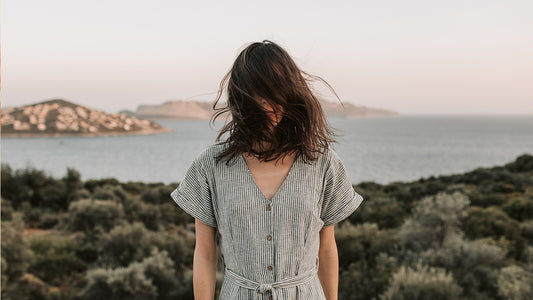
Photo: Casa Del Sol
“What are you drinking?” asks Eva Longoria, and she means it as a challenge. The movie star wants us to know where our cocktails come from, what they stand for, and where the money we spend for them is going. Last year, she launched a tequila label—Casa del Sol (“House of the Sun”)—that aims to center Latinx female leaders in the spirits industry and help regenerate the Mexican farmland where tequila is made.
Longoria knows she’s not the only Hollywood bombshell with a booze line. But with her deep connection to her heritage, her commitment to sustainable agriculture, and her OMG! inspiring fashion choices, she’s confident her tequila will be the most authentic one, and likely the coolest, too.
Of course, Longoria has tons of other things going on: A CNN travel show called Searching for Mexico, a War of the Worlds remake with Ice Cube, and the buzzy biopic she’s helming about Richard Montañez, the inventor of Flamin’ Hot Cheetos (really).
But even though she’s crazy busy, the Texas native managed to chat with Wild Elements for a few minutes before helping amfAR raise over $19 million for AIDS research and relief. #Overachiever, etc.
At Wild Elements, we talk a lot about ‘regenerative’ living…
I love that word! “Regenerative!” Because to me, it’s not just about treating the planet right, which of course we need to do. But it’s also treating the people right, and putting resources back into the communities where tequila is produced. Do you know we’re one of the only tequilas that are 100% Mexican? That’s actually very important from an environmental perspective.
What’s the connection?
When you have Mexican-owned and Mexican-led distilleries, they really understand how to respect the soil, the planet, and the people. And that is regenerative. You know, tequila is a centuries-old art, and when you disrespect that process to make more [money] faster, you hurt the land.
We love tequila. But we didn’t realize drinking it could hurt or help the planet.
Oh, but it can! Tequila is made from the agave plant. But because it’s such a popular drink, and because some corporations are trying to mass produce this drink that’s really a cultural touchstone for so many of us, agave plants are being cut down way too soon. That hurts the entire ecosystem! It takes seven to eight years for agave to reach maturation. And when you cut it down too soon, and replant too soon, the soil hasn't had time to recover. So we make sure that we don’t cut agave until at least seven years after it’s been planted.

Photo: Casa Del Sol
What else have you made regenerative?
At Casa Del Sol, we reuse rainwater so that we don’t have to pump extra water into the process. And we use all of the biomass left over from cooking the agave to heat the distillery. We’re using it as firewood and fuel, essentially! So it’s totally circular.
Your red carpet looks are legendary. How has what you’ve learned about the environment through Casa Del Sol changed your fashion habits?
Well, yeah, it’s interesting, because whenever you talk about style or fashion nowadays, you have to acknowledge that fashion can be one of the biggest pollutants in the world. So for me, I rewear a lot now, and I buy vintage, which is so fun. Also, I’ve stopped buying fast fashion… I mean, I was really unaware about how much [fast] fashion really pollutes, and so I've been conscious about buying from designers who are using recycled materials, and just using things over and over—investing in a piece and using it over and over.
Do you have a favorite vintage piece?
I have a black YSL blazer. I bought it vintage, and it’s just held up. I love it so much, and I wear it all the time. But look, not all people can invest in vintage or designer clothing. I get it; believe me, I get it. It's a privilege that I have. And so I'm going to do what I can to minimize my fashion waste and re-wear great pieces or secondhand pieces.
We have a saying, “Let good grow wild.” What does that mean to you?
That it's our responsibility to give back to nature! I think we're human beings. We eat on this planet; we need to care about where our food comes from… We need to respect the planet and realize we’re just one piece of it, and work to honor that.



